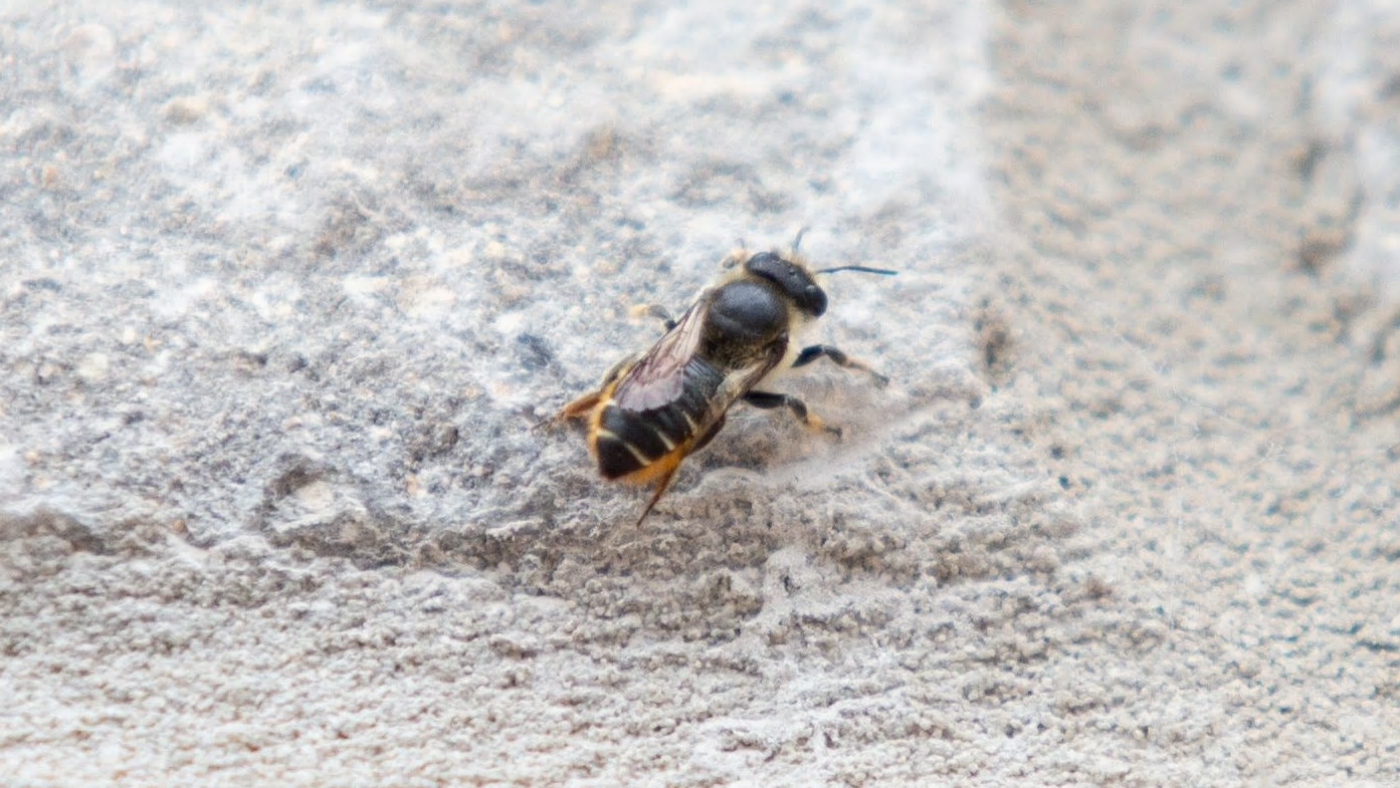The buzz around the fugitive Turkish bee explained
Outcry in Ankara as insect found at Bristol family’s home condemned to death by British government

A free daily email with the biggest news stories of the day – and the best features from TheWeek.com
You are now subscribed
Your newsletter sign-up was successful
A solitary bee has triggered an international row after accidentally journeying 2,000 miles from its home in Turkey to the UK.
The insect - believed to be of the rare Osmia avosetta species, which, ironically, prefers not to travel - has made headlines in both countries after being discovered at the home of a Bristol family who recently returned from holiday in the Turkish coastal region of Dalaman, The Daily Telegraph reports.
Ashley and Louise Toy contacted the British Beekeepers Association (BBKA) after finding an unusual petal cocoon on their conservatory sofa and then spotting the strange-looking bee, according to the Daily Mail.
The Week
Escape your echo chamber. Get the facts behind the news, plus analysis from multiple perspectives.

Sign up for The Week's Free Newsletters
From our morning news briefing to a weekly Good News Newsletter, get the best of The Week delivered directly to your inbox.
From our morning news briefing to a weekly Good News Newsletter, get the best of The Week delivered directly to your inbox.
The couple’s 19-year-old daughter, Amelia, told the newspaper: “It was bringing in these petals and creating little cocoons. Every morning it comes in when we open the door. Then it goes in and out, in and out.
“I’ve never seen anything like it.”
The BBKA immediately called in the Department for Environment, Food and Rural Affairs (Defra) and warned that the newcomer could have a “devastating effect” on native mason bees. A spokesperson for the beekeepers organisation said: “Non-native species like this bee pose several problems and need to be controlled.
“They may carry viruses that will wipe out native species or they may simply out-compete similar species for food sources.”
A free daily email with the biggest news stories of the day – and the best features from TheWeek.com
But bee expert Tim Lovett, a former president of the BBKA, cast doubt on those fears, saying: “One bee does not a disaster make.
“To be dangerous it would need to set up a viable home and start breeding, and if it hasn’t brought a mate with it then the chances of that must be next to none.”
Nevertheless, Defra confirmed earlier this week that arrangements were being made to “collect the bee for formal identification and destruction”.
Those plans have been scuppered, however, after the bee escaped, reports Yahoo! news.
The Animal and Plant Health Agency (APHA), part of Defra, subsequently said it would be collecting the cocoons and would continue to “monitor the situation”.
Officials are being urged to preserve the sacks, which may contain fertilised eggs, by scientists including Dr Jerome Rozen of the American Museum of Natural History.
Rozen was the first to discover the species, 5,000ft up a remote southern Turkish mountain in 2009 - the same year that the bees were also found in Iran, the only other country in which they had been spotted until now.
He told the Telegraph: “They need to have their head examined if they’re going to destroy the brood chambers.
We need to have a proper look at them to get to the bottom of this.”
The story has also sparked debate in Turkey, where popular daily Hurriyet has run a print story with the headline “Don’t kill the ‘Turkish bee’”.
And Buket Uzuner, a Turkish novelist and environmental campaigner, has tweeted satirically about the decision to exterminate a Turk entering Britain “without a visa and passport”.
Meanwhile, Turkey’s Union of Beekeepers has accused tourists of removing wildlife.
“Many animal lovers and nature lovers come,” said union president Ziya Sahin. “They are able to catch a variety of insects and bees and take them away in cages. They come here to do this very intentionally.”
The Toy family have denied deliberately taking the bee, which they suggest accidentally ended up in one of their suitcases during their holiday.